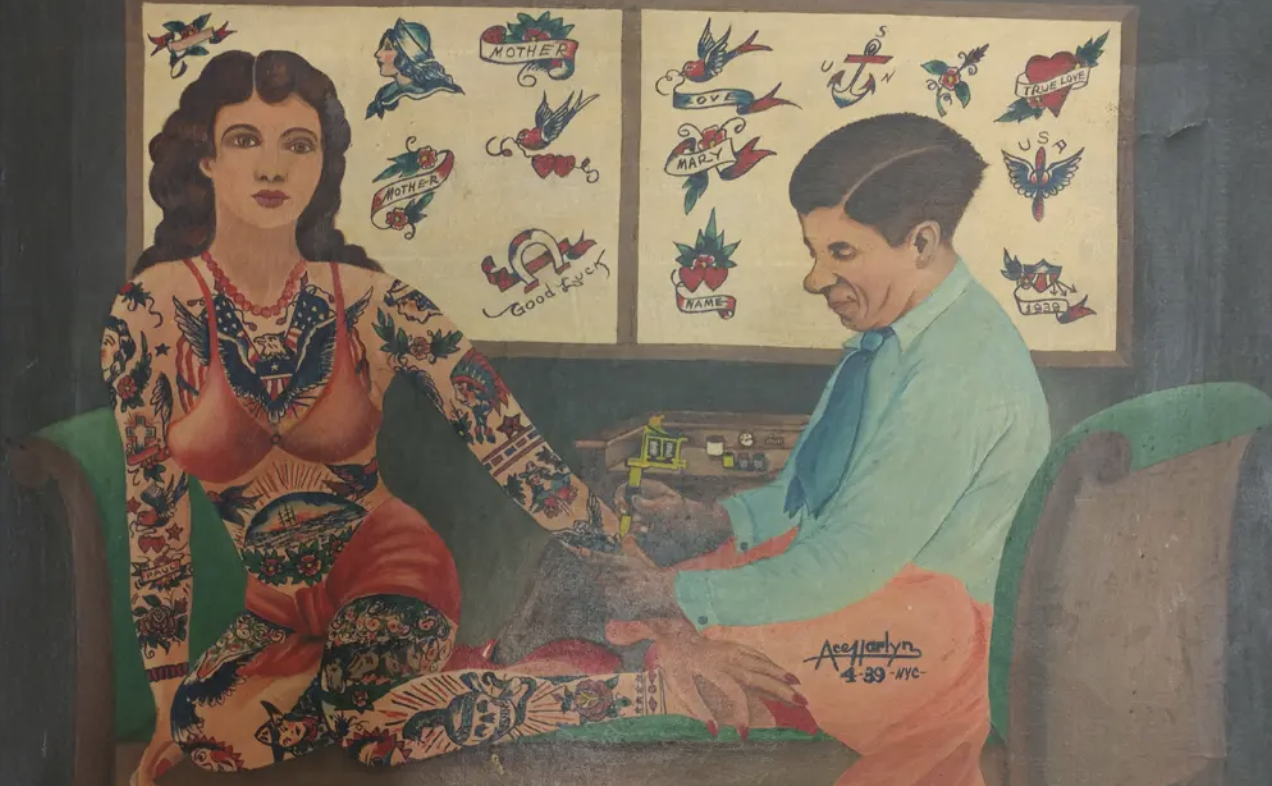What is a modern private tattoo studio?
When you tell your mom or dad you’re getting a tattoo, the image in their head might be you walking into a classic tattoo shop, picking something off the wall, and getting it tattooed onto you, no? While these ‘Sailor Jerry’ type of tattoo studios are very popular and have a rich history in the United States, modern private tattoo studios run differently. Here’s what you should know about modern private tattoo studios and whether or not this environment is right for you.
The distinction between a classic tattoo shop and a private modern tattoo studio often lies in various factors, including atmosphere, approach to tattooing, and overall customer experience. Here are some general differences:
Atmosphere and Setting:
More traditional shops have a more communal atmosphere, with artists working in an open and shared space. Private modern tattoo studios tend to have more intimate and private settings. While we are a private modern tattoo studio, we believe that the more open-plan environment encourages collaboration and creativity. Even today in the corporate world, offices are switching to a more agile work environment, where the absence of physical barriers like walls or private rooms, are designed to foster a sense of togetherness amongst artists or employees. The guiding principle behind this design philosophy is that the absence of physical segregation can cultivate a more collaborative, communicative, and innovative work culture (Morrison & Macky, 2023).
Additionally, I wanted to create a serene tattoo experience for our clients who prefer to escape their chaotic lives and spend their day in a quiet, peaceful, laid-back environment. Tattooing can already be a stressful experience, so there’s no reason to add a chaotic, loud environment on top of that.
Artistic Style and Specialization:
Classic tattoo shops may have a diverse range of artists with various styles, catering to a broad clientele. Traditional, tribal, and classic styles may be prevalent. Private modern tattoo studios often feature artists who specialize in specific styles (realism, watercolor, geometric, etc.). Clients may seek out a particular artist based on their expertise in a specific niche. Therefore, artists pick and choose design requests based on what they would be capable of. For example, a black and grey realism artist may not accept a watercolor tattoo.
Appointment System:
In classic tattoo shops, walk-ins and tattoo flash (on walls or books) are more common. Appointments are still possible, but there may be a higher chance of getting a spontaneous tattoo. In a private modern tattoo studio, they generally operate by appointment. Artists in private studios may have a more controlled schedule, allowing them to focus on each client without interruption.
Client Experience:
Classic tattoo shops offer a social atmosphere where clients might interact with multiple artists and other clients. It can be a more dynamic and bustling experience. Private modern tattoo studios tend to provide a more personalized and one-on-one experience. Clients may appreciate the exclusivity and attention to detail that comes with a private setting.
Design and Equipment:
Class tattoo shops often have a more straightforward and traditional aesthetic. Private modern tattoo studios may feature more modern and specialized equipment. The studio’s design and decor may reflect a contemporary and artistic vibe. At Ultrashade, we have partnered with Double Knot to run our interior design operations and renovations. Our studio also offers a state-of-the-art photo room to ensure you get an amazing photo of your new art.
Pricing:
Classic tattoo shop prices may vary based on the complexity and size of the tattoo. Some shops may have a set pricing for common designs. Private modern tattoo shops pricing may reflect the artist’s expertise and the exclusivity of the studio. It might be more common for artists in private studios to charge a flat rate or have higher hourly rates. It’s common for apprentices and newer artists to have lower hourly rates.
These distinctions are generalizations, and there can be variations among individual shops and studios. Additionally, the preferences of both artists and clients can influence the atmosphere and style of a tattoo establishment.


